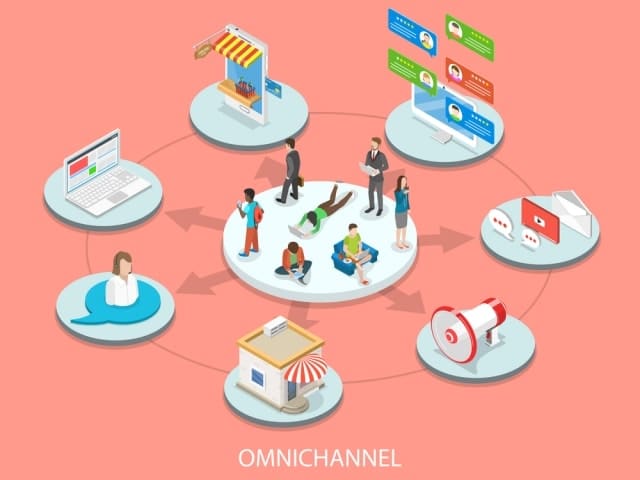With the Corona virus wave and businesses facing its detrimental economic effects, the relationship between marketing agencies and their clients will have to evolve even more.
At the start of any project or collaboration between marketing agencies and clients, the atmosphere is always cordial as it seems as though they have one common goal which is to convert more leads and gain more sales for the client.
However, further down the journey and relationship, many would find a change in relationship dynamic between them and their clients, and what incentivizes them are often disparately different.
In 2020 with this ongoing recession, we need to make sure our business relationships continue to be rock-solid no matter how digital communications evolve.
This article dives into biggest problems clients have with agencies, how to rectify those and moving forward, what is crucially necessary to adapt and excel in the years ahead.
We also discuss what marketing directors and business owners need to consider as they evaluate their current agency providers and seek to maximize their marketing investment in 2020 and beyond.
What SG agency directors will be focusing on in the next years
Singapore has passed the peak of the COVID-19 crisis, but businesses are yet to be operating in the same pre-pandemic business climate. Leaders need to recognize and capitalize on what’s changed, while also identifying opportunities for more fundamental transformation to help rebuild organizational revenue streams.
This year has been anything but business as usual. Just like that we are well into the second half of 2020 and since the COVID-19 pandemic hit in full force, agencies big and small are trying to stay viable and tide through the year.
Naturally, clients have pointed towards a more than ever need for a results-driven approach.
As the urgency is recognised, it is important to note that it is not enough to achieve results, in the long term they must also be communicated effectively to business leaders so that they get a tangible sense of the value marketing is bringing to the business.
Why should a client work with an agency instead of the 1,000 other agencies offering exactly the same services as one?
This is what clients are investing in- true expertise.
True expertise is knowledge and experience that can’t be learned from courses and seminars. It’s expertise that’s mastered from years of first-hand experience leading an industry or skill.
This expertise is the opposite of the “all in one solution” that has plagued the agency business in Singapore for the last decade. When you offer full stack marketing and try to acheive everything for everyone like a jack of all trades, you seldom achieve well at anything. And your margins will clearly reflect that.
Other than true specialised expertise, what’s remained at the forefront of all decisions is the necessity to be agile and adaptable, especially amid this pandemic and recession times.
The Biggest Problems Clients Have With Digital Agencies
HubSpot noted that business relationships back in 1984 continued an average of 7.2 years then dropped to 5.3 years by 1997. Recent research by R3, a blockchain FinTech company, revealed that the current advertising agency-client relationship lasts an average of only 3.2 years.
Clients and agencies that devise ways to communicate on what’s working and what needs improvement continually optimize their working relationship will reap the rewards. Clients deserve ongoing results, continual improvement and consistent value.
1. Communication
This comes as no surprise, even after years of improvised methods and tools, communication breakdown seem to always be the number one problem that clients and agencies struggle with.
Agency-client relationships are all about partnership. The stronger the relationship, the better the results.
You need to know everything said about your client online to provide the best advice and build the right strategy. Any agency that promises to handle digital communications needs to track what’s said about its clients online and offline.
Clients often have a difficult time expressing their needs to agencies through the proper channels, leaving many agencies struggling to meet the demands placed on them.
Also there’s another foreboding issue that plagues communication breakdown and bad campaign results- a lack of transparency.
A lack of transparency will cause any business relationship to spiral downwards, particularly when it impacts on campaign deliverables. In Singapore, it is common for employees to withhold revealing key business information to agencies with a ‘I don’t trust you with this information about the business’ thinking.
The result is an agency that second guesses themselves all the time, when that happens either alot of time and resources are wasted when campaigns don’t turn out as well as expected and it’s a no-win situation for both parties.
2. Expectations
This situation has to be reviewed from different points of view.
As a client a major responsibility is to share crucial information with your digital agency.
Is there any market motivation that makes it difficult or impossible to achieve these results?
A key problem is that expectations of clients may change over the course of a project and may lead to disagreements and consequently to project failures. Agencies should continuously involve clients to express their expectations, set their expectations, and adjust inappropriate expectations. Also it is the agency’s duty to keep clients updated on all internal advancements to showcase that they are staying ahead of market trends and remaining competitive in the marketplace.
Project managers report that it is hard to satisfy their client’s needs, especially when projects are complex and face high levels of uncertainty (Boehm & Ross, 1989).
The problem is that clients cannot always clearly describe their needs at project start or their needs may change over the time of the project execution.
Concepts of quality management, like the house of quality (Griffin & Hauser, 1992), are used to identify explicit and unspoken needs. Meeting those needs would lead to client satisfaction only if they remain stable over the implementation of a project. But, needs are based on expectations, and they might change based on the dynamics in the business environments of projects.
(PMI)
If the client has unrealistic expectations of what he can achieve with the execution of a digital strategy, and if the agency is not capable of detecting them, or at least not establishing reasonable and honest doubts about those expectations, the relationship is already part of an incorrect trust base. If these unreal expectations are defined as the objectives to achieve, the problem is already served and it will only be a matter of time before the relationship is bad.
-digitalmenta
3. Shifting Landscape (even more post COVID-19)
This is occurring because the world of digital is ever evolving especially crucial periods like after a massive recession caused by COVID-19. Audiences can be reached at different and more channels as compared to the past using a variety of tactics, and businesses are moving towards younger and more dynamic marketing agencies who are more agile in their techniques, strategies and working methods as compared to very traditional companies.
As a result, larger, more established agencies are looking for ways to transform their organisational structure and working methods to accommodate these changing client desires.
Collaborations between companies are now the norm as consultancies and technology vendors welcome other specialised business units to handle increased demand for deep expertise and agility in all areas of digital.
The drastic transitions occurring in the industry have caused much misaligned between agencies and clients who both need to rapidly adapt their business models, especially both who now have multiple partners, strategies, and working styles to keep track of.
How agencies and marketers can create better working relationships in 2020 & beyond

1. Fully aligned marketing agency and clients’ interests
Like any lasting relationship, an agency and client partnership should be based on communication and closely aligned interests. We need to find out our client’s goals, what their vision is, and how they define success. All these have to be specific. KPIs must be established.
Do not be hasty on the goal setting process, drilling down to the goals is and should be time-consuming. It takes good and thorough conversations, alot of uncovering and research, and plenty of back and forth between client and agency.
How closely both parties work together to get down to this process effectively, determines the real value of this partnership. It might be tedious but when the approach the agency designs matches what the client demands, business’ real needs are solved, it also ensures that the KPIs will be measuring what really matters.
Collaboration and interest-aligning is not a one time process, it has to be on-going with good communication, allowing agencies to discover and identify gaps or new sales opportunities along the way.
Effective marketing is equal parts data-driven insights and inspired idea, an open and insightful partnership between an strategy expert and a leader who decides the direction of where the business should head.
After polling dozens of agencies on the subject, it was learned that 48% of agencies say that only about 25% of their clients come to them with clear goals already in place.
28% of agencies said about half of their clients already have goals in place, and 11% said less than 10% of their clients do.
-databox
2. Build relationships on full transparency
It’s often hardest to be transparent at the beginning of a relationship, since you are just starting to get to know each other and it is natural to want to impress your new partner while covering up your business’ flaws.
However, being transparent is a two-way street in the world of marketing, with both clients and agencies responsible for being clear about their goals, expectations, strategies and results.
Details are critical to gauging the success of a campaign, and a client being transparent with their results can help your agency move forward with rectification much more efficiently.
The agency on the other hand should also provide a thorough accurate final report after each campaign that incorporates key information on the performance, helping the client decide whether or not to continue with the campaign, expand or reduce his investment, or look to add or reinvest into a different marketing channel.
If these values guide the way agencies and clients work with one another, the outputs and outcomes are usually rewarding and the relationships will be an enduring one.
- Clarity in setting business and agency KPIs.
- Consistency in staying true to the strategy agreed upfront is critical to agency’s ability to make clients successful too. Change course only if there are strong business reasons to pivot and adapt our plans.
- Transparency in what works and doesn’t work for both sides. Be it people, expertise or process so that there is room for immediate recovery.
- And finally, ‘Equity’. Which is being fair in giving recognition and putting accountability on agency partners, while paying fair fees for the quality they expect.
(marketinginteractive)
3. Agencies of the future will be value drivers, not service providers
So for the longest time, the agency’s role has been to render services, an extension of a company’s marketing team, an outsourced help, order-takers.
Clients submit requests, and agencies fulfill those requests.
In the modern day, this will no longer work.
The problem with this model is that agencies are delivering a product, and not necessarily delivering value. Agencies that are able to provide not just mere work outputs but drive value to their client’s business, will reign superior.
The agency of the future must take the lead, seek to understand the problem clients are trying to solve with requests, and use their expertise to offer alternative solutions that will drive real value.
What we’re aiming for is a shift in focus. Rather than focusing on the time spent on a project, we focus on the value.
Clients want to see marketing results that align with the brand’s marketing and business goals. And this means agencies need to better understand business metrics around sales, revenue, customer satisfaction and retention, employee engagement.
In addition, agencies need to close the loop, they have to be able to tie activities to objectives to prove their value.
(Dawnonandrews)

Conclusion
Every client-agency relationship has experienced brushes due to miscommunication or a perceived lack of performance. However, take a step back to realise that both parties have the same end goal-which is to experience strategic success, great collaboration and relationship with clients and great results.
The overall success of a client-agency relationship is absolutely a two way street.
Clients will get the most value from your agency when you give them the right amount of input and space they need, meaning enough days in the timeline to deliver campaigns, forward-thinking work that have proven KPI, the freedom to innovate on concepts or campaigns without preconceived direction or tight guidelines, allowing them to execute new or different ideas beyond expectations.
Moving into 2021, iFoundries’ main focus will be without doubt, to use our strong marketing expertise to help businesses and brands continue to recover, and be ready to grow once again.
Here is what we will focus on and promise to deliver:
- Consistently aligned efforts with client’s business goals
- Clear expectations
- More effective use of marketing budget
- Results-oriented reporting
- Increased value and innovation
- Agile response to market opportunities
- Stronger communication processes and tools







